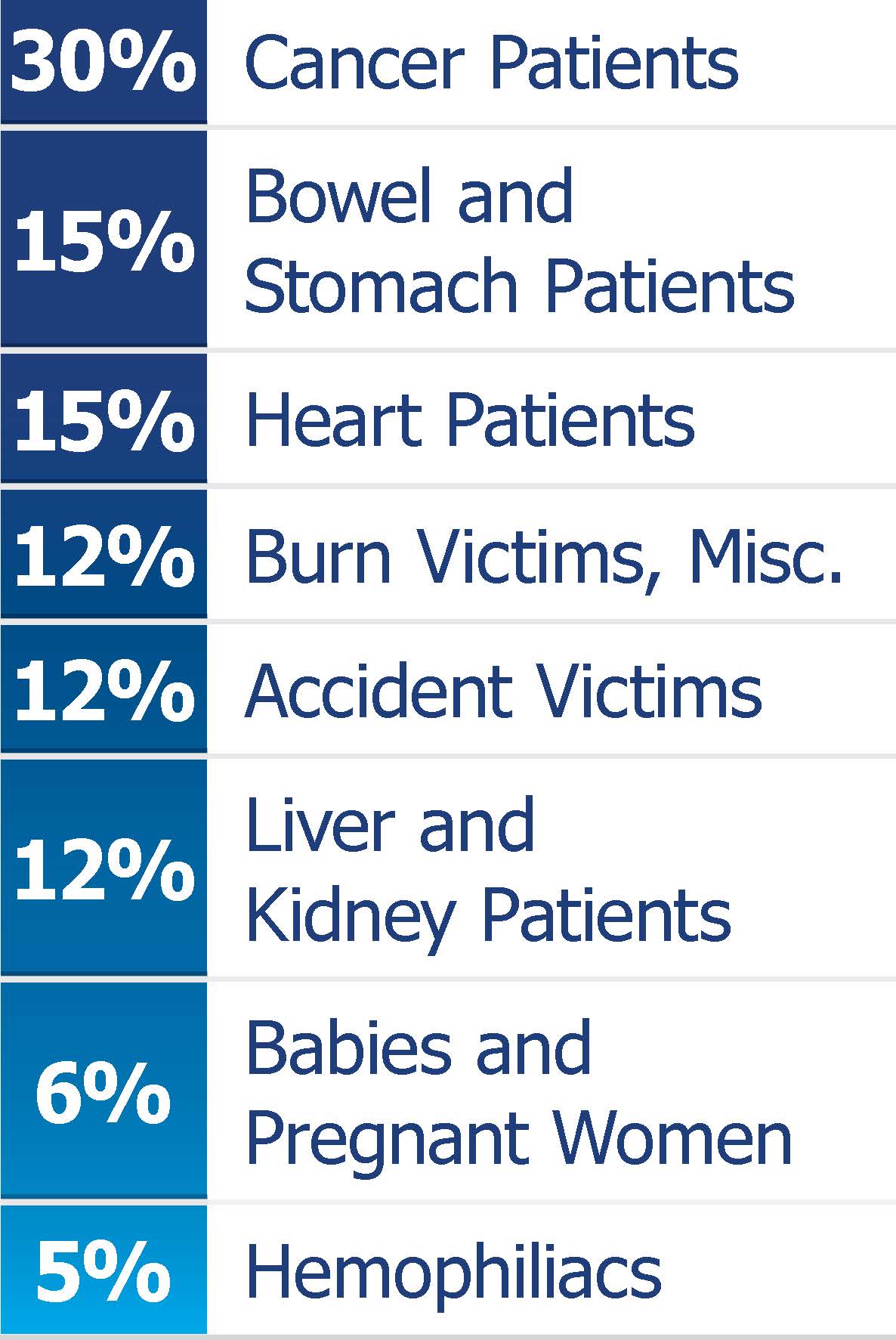For First Time Blood Donors
Why Give blood?
Every two seconds, someone somewhere needs blood. One of every seven people who enter the hospital will need blood. That person maybe you, your loved one, friend, or co-worker. With all the wonderful advances in modern medicine, there still is NO substitute for human blood. The blood that helps patients comes only from caring people who volunteer to help others by donating their life-saving blood.
In the short time it took to read the above paragraph, 11 people needed blood.
Will you help? Schedule your donation here.
Who Needs Blood?

Who Can Give?
Anyone at least 16 years of age, weighing at least 110 pounds, and is in good health can donate blood.
Sixteen-year-olds must submit a permission form signed by a parent or guardian.
Some people may be temporarily or permanently prevented from donating blood due to certain health conditions. If you have a question about your eligibility to donate blood, contact your local LifeShare office.
How To Give Blood
When you register, LifeShare staff will recommend a donation procedure that is best suited to your blood type and current patient needs.
You may be asked to donate different blood components each time you give.
During your donation, you will be attended to by trained specialists.
Whole Blood
The most frequently donated blood product is whole blood, which can help up to three patients with a single donation. Anyone who qualifies to give blood may be a whole blood donor, and may give one unit of blood every 56 days.
How Long Does It Take to Donate Blood for the First Time?
A whole blood donation process takes about 45-60 minutes, including registration, screening, and donation. The actual donation takes about 10-15 minutes.
Schedule your whole blood donation now.
Automated Collections
During automated collections, we can collect various combinations of blood components:
- Red cells, used in the treatment of surgery, trauma, cancer, and severe anemia patients.
- Plasma, used in the treatment of burn and trauma patients.
- Platelets, used in the treatment of transplant and chemotherapy patients.
There are several automated donation procedures. You may be asked to give a different type of apheresis donation each time you give, based upon current needs.
Automated donation procedures are safe. They usually take longer than a whole blood donation, but while you donate, you can watch television or videos, listen to music, and in some LifeShare locations, you can even surf the web.
Therapeutic Blood Donation
QUESTIONS ABOUT BLOOD DONATION?
One out of every three people will need a blood transfusion during their lifetime. Can you help provide it?

Payton Bryd
Syndrome & Atrial Septal Defect